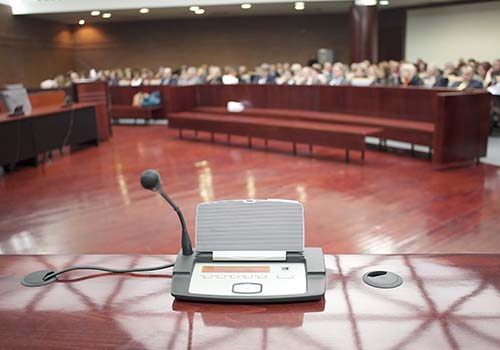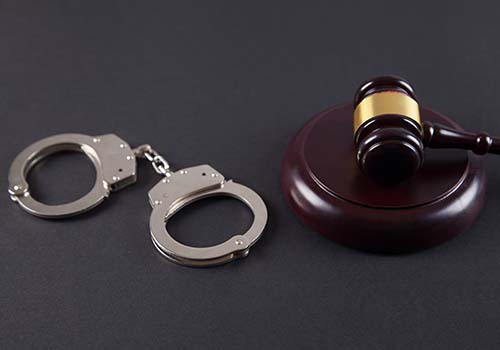
The Sixth and Seventh Amendments of the United States Constitution guarantee criminal defendants the right to a lawyer and a speedy public trial of impartial jurors. The right to a trial by a jury of one’s peers is crucial to democracy and the individual’s protection against government tyranny. When a person accused of crimes is tried by a jury, the state does not have the final say about guilt or innocence. The power is with the people empaneled on a jury. Thus, when you get that jury summons in the mail, you know that you serve an important role in preserving the checks and balances set in place by the nation’s founders.
Still, not everyone is happy to find a jury summons in their mailbox or to perform their civic duty. You must take time off work or away from family to attend jury duty. You may not be able to serve on a jury for a good reason or not want to serve for the financial loss you may suffer from taking time off if you are self-employed. You may want to know what jury service is and what to expect when you show up for jury duty, or if you fail to show up. While laws are slightly different across the nation, each state has rules about appearing for or missing jury duty.
Table of Contents
Potential Consequences Of Missing Jury Duty

It is everyone’s civic duty to perform jury duty. The jury summons that comes in the mail alerts you of your duty to serve and where to do your jury service, typically at the courthouse nearest you. Prospective jurors come from several sources, including the Department of Motor Vehicles and voter registrations. But even though you must appear on the date and time indicated in the summons, you may not necessarily be on a jury. Nevertheless, you must appear and fill out a questionnaire to determine if you are eligible to serve on a jury that day. If you do not appear, you may be in contempt of court, depending on where you live.
In California, for example, you could be in contempt of court for missing jury duty, though maybe not the first time. The consequences are up to the judge and the state law. California Civil Code penalizes those who fail to show up for jury duty with a $1,000.00 fine ($1500.00 in some counties) and potential jail time. And though you may get away with missing jury duty once, you may not be so lucky the next time. You could receive another summons with a warning not to miss again, or you could be immediately fined after missing the first time.
Alternatively, a judge could call you into court by an order to show cause, which is a hearing where you must explain to the judge why you missed your obligatory jury duty service. Finally, a judge could issue a bench warrant for law enforcement to find you at your address on file to bring you to court. Even if they do not find you at your address, you could suffer the consequences if you get stopped for an ordinary traffic infraction and the officer that stopped you finds the outstanding warrant. You could be taken to court then. And if you miss jury duty and a judge sets an order to show cause, you are likely to face high fines and community service, at least, possibly days in jail.
Valid Reasons For Missing Jury Duty

You may have a valid reason for missing jury duty. After all, the court makes mistakes, and you may experience hardships that prevent you from jury service. For example, you may have served on a jury or grand jury in the last year, which excuses you. In addition, you may suffer extreme hardship by traveling over an hour and a half to get to the courthouse, or you have no transportation means. Your job may prevent you from taking time off if you are a police officer and need to protect the safety of others, you are the sole caretaker to someone, or you are in the military.
Serving on a jury may also cause you to bear extreme financial, mental, or emotional strain. But beyond personal reasons, a person may not qualify to perform jury service if they are under 18 years of age, not a citizen of the United States, unable to speak the English language, or have a felony conviction on their record. For all excuses or postponement requests, you must provide evidence of your hardship or disqualification to the court, usually by way of a written response to your jury summons before or on the day of service. Evidence may include your paycheck stubs, a letter from your employer stating you do not get reimbursement for jury duty, or proof of you being the sole provider of care or financial support to dependents.
How Jury Duty Selection Works
When you receive your jury summons, you may want to call or show up on the day of service to avoid legal consequences. You should know that appearing does not guarantee that you will be on a jury. You may not even make it to the jury selection or be in the jury pool. Most potential jurors do not end up on a jury.
The first thing you do after arriving for jury duty is to fill out a questionnaire to determine your eligibility. Depending on the case, the judge and lawyers for all parties want to know information about you that may disqualify you as someone who may not be impartial. For example, if your spouse is a police officer and the case involves a police officer, you may not be selected. The questionnaire, which you may get in advance or on the day of jury duty, may also be the place to state your valid exemptions. Each state varies, but you may have to mail in the questionnaire, submit it online, or present it in person before or on the day of your appearance.
If you are selected as one of twelve jurors, you sit as a juror throughout the entire trial. You may be unable to talk about the trial to anyone, use your cell phone, or remove notes or other materials you receive while serving on the jury from the jury assembly room. You also may have wardrobe restrictions in court, such as tank tops or slippers. And finally, your jury service may last one day or stretch into weeks.
As a juror, you must listen to the evidence and arguments of both sides, plaintiffs, and defendants, and then vote on a verdict. If you are on a criminal case, you will be voting on guilt or innocence. In a civil case, you vote for the plaintiff or defendant. Once the trial starts, you may not be excused. If you are not selected, the court releases you, and you can go home. You may not have to serve for another year or more.
How To Request Exemption From Jury Duty
You can request an excusal from jury service after receiving your jury summons. You must make a written request for an exemption. Depending on which state you live in, you write to the court administrator or court staff in charge of jury matters. In California, you contact the Jury Administration Office for an exemption. Be sure it is as much time as possible before your service date.
Decide whether you are requesting an exemption from, or a deferral of your jury service. To justify for an exemption, you must detail the undue hardship you would endure by serving on a jury. For example, if you have a medical hardship, include a doctor’s note excusing you from jury duty. You may also list any disqualifying facts, such as your inability to speak or understand English, or your incarceration on a confidential jury affidavit. Typically, you may mail in the written request and affidavit to the administrator. However, if you are a prospective juror claiming a self-employment or financial hardship, medical reasons, or lack of childcare, you may have to appear before a judge who may defer your jury duty service date.
The Bottom Line
Receiving a jury summons is a reminder of your civic duty. The judicial system in a democracy depends on the participation of community members to serve as peers on a jury panel. Whether you serve on a grand jury in the circuit court or on a superior court jury for a civil or criminal case, you must either appear on the day of service indicated on your summons or request an exemption. All requests for excusal must be in writing on a questionnaire or affidavit and must contain evidence of your claimed need, disqualification, or hardship.
If you miss jury duty, you may face no consequences the first time, and may receive a new summons with a warning about missing another time, contempt of court, or an order to show cause, where you must appear before a judge. You could also face jail time. However, if you do appear on the appointed day, you may not serve on a jury. But if you do, you must be aware of the rules and expectations of you as a juror in the criminal or civil justice system.
Frequently Asked Questions
Will I be paid for jury service?
State and federal law mandate that prospective jurors get paid a daily rate, typically $15.00 per day and $.034 per mile after the first day of service. The first day of service is unpaid. However, rates vary from $50.00 per day in South Dakota on the high end to $6.00 in Texas on the low end. And not all states pay mileage reimbursement.
What if the dates of my jury service conflict with my work or personal schedule?
You may have important business or personal matters that you must take care of on the day you are scheduled for jury duty. In that case, you can make a written request for a deferral. You must present evidence that your work or personal schedule matters are important enough to miss jury service. In other words, your lunch date with a friend you have not seen in years, who is only in town the day of your jury duty, may not be a compelling reason for a postponement.
Your jury summons should contain information on how to request a postponement. Otherwise, you must appear for jury duty unless you applied for an exemption and the court approved it.
Can I volunteer for jury service?
No, you cannot volunteer for jury service. The jury selection process is a random choosing of names by a computer software program. Random selection ensures fairness, non-discrimination, peaceful resolutions, community representation, and participatory governance by the people for the people. All who the state charges with a crime are entitled to a jury of their peers, and random selection of jurors draws a fair cross-section of the community.
How long is jury service?
If the court does not impanel you on a jury on the first day, the judge could excuse you, and your service is complete for a year. And if you serve on a jury, once the trial is over, your service is done for a year or more.
If the court selects you for a jury, your service could last a day to the recommended ten days by the government, but it could be longer. Some cases take a day or two to present, while others settle before the trial begins or during the trial. More complex trials with many issues or multiple defendants may take weeks to complete.
It is essential that you complete your duty regardless of the trial length. Once the trial starts, you cannot walk off the jury without a compelling and valid reason. While juries usually carry one or two alternate jurors in the event a juror gets ill, suffers a death in the family, or has another emergency; you must prepare to complete your jury service to its conclusion; otherwise, you may be in contempt of court. On average, trials last three to five days.
